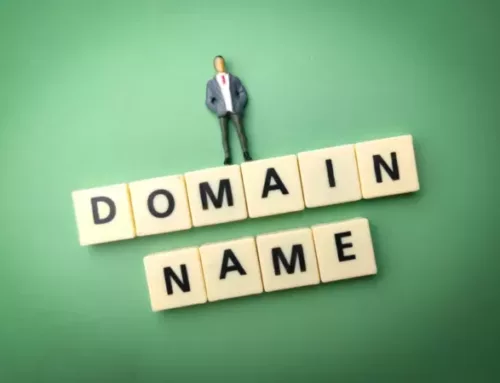Equipment, buildings, equipment, and inventory make up a sizable portion of a business’s value. However, intangible assets are becoming an increasingly important portion of a company’s total asset portfolio as we navigate the commercial realities of a digital age. Although they can be difficult to itemize and track, these products still have long-term worth for many businesses. To learn more about the importance of intangible assets, contact War IP Law by calling (202) 800-3754 and set up a consultation.

What Are Intangible Assets?
From patents to trade secrets, many elements of intellectual property (IP) function as intangible assets. The Internal Revenue Service describes assets in this category as valuable property that cannot be touched or seen. These items have always formed an important part of daily business in a variety of fields, but the increasing emphasis in recent years on “knowledge” industries has brought the importance of intangible assets into sharper focus.
Unlike other types of assets that can depreciate, these items tend to hold their value––often for a period of several years. Sometimes, they can even increase in value depending on the current market conditions. In many cases they also do not have a liquid value, meaning they cannot be sold for cash like a building or piece of equipment.
Intangible Assets Are Just as Important as Tangible Ones
Despite their lack of physical presence, intangible assets are valuable. Here are some of the key reasons why they are so important and what businesses can expect from their useful lives.
Creates a Marketplace Edge
Patents, trademarks, and copyrights can all lend themselves to the creation of a sense of exclusivity. While this distinction in the mind of consumers gives competitors significant incentive to “poach” on a company’s intangible assets, robust intellectual property protections often make it possible to defend these assets through legal mechanisms, including litigation against infringement if necessary. An experienced intellectual property attorney may be able to advise you on the IP protections available to protect your company’s intangible assets.
Boosts Brand Recognition and Reputation
Brand names, logos, and customer loyalty are other factors that contribute intangible assets to a company’s total portfolio. A strong brand helps companies to attract customers, increase sales, and command premium pricing.
Builds Customer Lists and Relationship
Customer lists, databases, and established customer relationships are considered intangible assets. The useful life of these assets can vary significantly based on factors like customer loyalty, industry dynamics, and changes in consumer preferences.
Utilizes Modern Software and Technology
Software programs, computer code, and technology-related intangibles can have useful lives that vary depending on the rapid pace of technological advancements. Upgrades and obsolescence can impact the value and useful life of these assets For this reason, direct-to-consumer businesses often opt for a subscription model when their intangible assets are a significant portion of what they actually sell; rather than selling a single, fixed version of a program or digital record, they lease access to regularly updated versions that keep pace with hardware innovations and shifts in cultural and economic expectations.
Increases the Opportunity for Contracts and Licenses
Long-term contracts, licensing agreements, and franchise agreements can be examples of intangible assets. The useful life of these assets typically corresponds to the duration of the contract or license agreement.
Determining the Useful Life of Intangible Assets
The useful life of intangible assets can be challenging to determine since it often depends on shifting combinations of internal and external factors. Companies assess the useful life of their intangibles periodically and may need to adjust them based on changing circumstances, market conditions, or legal considerations. If you would like to learn more about these assets, reach out to War IP today.
What Is the Most Important Intangible Asset?
Intellectual property is widely recognized as the most valuable class of intangible assets. These creations of the mind are used in commerce, per the World Intellectual Property Organization. There are four primary classifications of intellectual property:
- Trademarks
- Trade secrets
- Patents
- Copyrights
Why Do Businesses Develop These Assets?
Many businesses will have at least a few intangible assets, even if the portfolio is limited to relatively simple items, such as in-house project management protocols or quality control rubrics valued internally for increasing efficiency and decreasing waste. The business purposes of intangible assets can be summarized into several key points:
Boost Business
For businesses wanting to stand out from rivals, intangible assets visible to the public can be especially valuable. Strong brands, innovative technologies, or exclusive intellectual property rights can all increase a company’s marketability, draw new customers, and build a devoted clientele.
Increase Revenue
These resources aid in generating income. An individual or business can also profit by licensing intellectual property, such as patents or copyrights. Additionally, strong and well-recognized brands can command higher pricing for their products or services, increasing their profitability.
Offer Security
The availability of relatively strong protections for many types of intellectual property classed as intangible assets means that companies can defend these types of assets aggressively through legal channels. This can sometimes make it possible to preserve intangible assets from depreciation to a degree, and over a period of time, that is rarely practical for physical items that require secure storage, locks, and keys.
Provides Investment Opportunities
A major element in increasing a company’s appeal to potential investors is the possession of valuable intangible assets. These resources reveal a business’s long-term potential and competitive advantage, which investors highly value. Strong intangible assets can significantly boost a company’s perceived value and stability, which attracts investors and may result in more funding or a favorable valuation.
What Are the Risks of These Assets?
Although business owners need to understand the importance of intangible assets, no form of value comes without potential risks. Intangible assets are susceptible to their own drawbacks.
Infringement
Infringement is a substantial source of concern for businesses managing intangible assets. Unauthorized individuals, often competitors in the marketplace, may try to access intangible assets. When such theft succeeds despite attempts at legal defense, or when a suit is brought but the damage has already been done , a corporation can suffer a loss in reputation, exclusivity, and income. While there are still legal safeguards in place, these losses can lead a company to pursue legal remedy for damages––and the court proceedings themselves can cost both time and money.
Counterfeiting
Counterfeiting is another concern, particularly for well-known brands. Counterfeit products can hurt sales as well as the reputation of the brand and consumer confidence. Strict supply chain controls, anti-counterfeiting strategies, like holograms or distinctive product identifiers, and client education are ways businesses can fight counterfeiting.
Obsolete Technology
Businesses that rely significantly on particular software or technology risk becoming obsolete. The value and competitiveness of once-innovative assets may suffer due to rapid technological progress and market shifts. Companies should stay current on technical advancements and make research and development investments to prevent this. Maintaining the ability to modify or upgrade their intangible assets is also vital.
Undetermined or Fluctuating Value
Determining the worth of intangible assets like brand equity or client connections can be challenging without precise market values. Such valuations use complex methodologies and judgment-based assessments. Companies will need to apply dependable valuation procedures, hire qualified appraisers, and consider comparable goods or services already on the market to ensure accurate valuations.
Reach Out to an Intellectual Property Attorney in Washington, D.C.
In the digital age, the importance of intangible assets has risen, surpassing the traditional focus on physical assets. Intangible assets can provide long-term value for businesses and offer advantages. However, these assets are not without their risks and challenges. By developing a strong understanding of these assets, you can build a more robust portfolio for your business. If you would like to learn more about intangible assets, please consider scheduling an appointment with War IP Law by calling (202) 800-3754.






